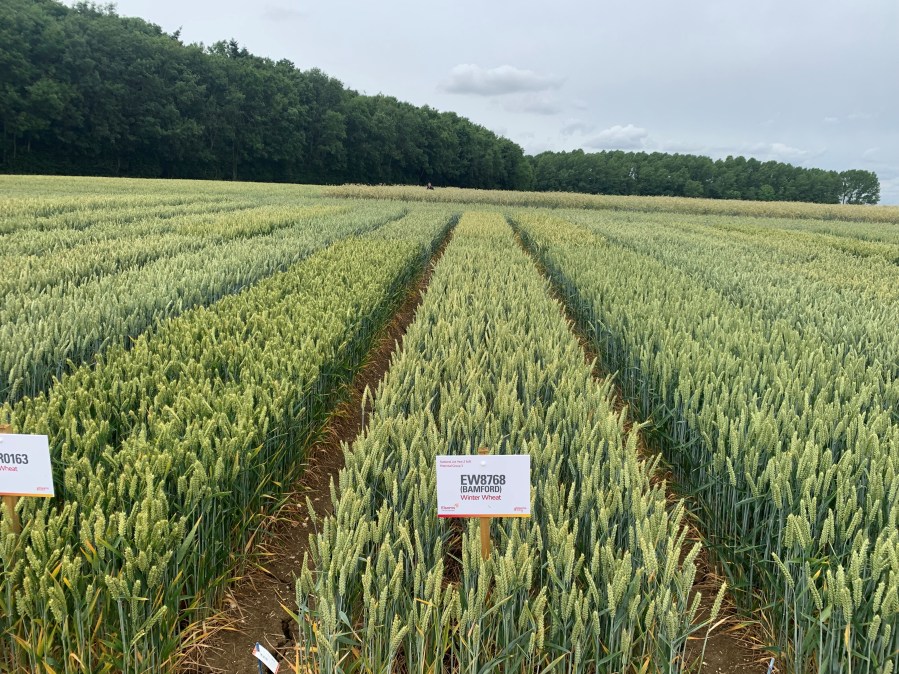Group 3 soft wheat variety, Bamford, continues to generate interest following a series of industry and on-farm trials.
The variety, from independent breeder Elsoms Seeds, is currently the highest yielding of this year’s Recommended List Soft Group 3 candidates.
According to Agrii’s Rodger Shirreff, its performance across 14 of the company’s trials has shown Bamford to be the highest yielding winter wheat in both treated and untreated yield categories.
“Our trial process is different to the NL, in that we test varieties to identify those which offer the best return on spend for growers. Across all Agrii trials, Bamford has been the highest yielding wheat regardless of group classification,” says Rodger.
“With Moulton in its parentage, Bamford offers solid disease resistance including an 8 for yellow rust and a 7 for septoria. That solid platform enables growers to plan their spray programme while also protecting the crop in the periods leading up to applications.”
Premiums
Rodger says growers have plenty of options to achieve premiums because the variety meets the specifications for distilling, Group 3 biscuit and as a UK soft wheat for export. “This type of flexibility suggests that Bamford will be easy to market.”
For Boston-based first-time Bamford grower, Danny Anderson, a bad septoria year in his area proved to be a good test for the variety’s disease resistance credentials.
“We drilled Bamford on 31 October into a silty loam soil at a seed rate of 180kg/ha following a crop of sugar beet. It wintered well despite some hard frosts and looked very forward, so we went with just one split of liquid nitrogen applied at 840 l/ha on 22 February,” he explains.
“On advice from our agronomist, Dan Hutson, we went with a 4-spray fungicide programme applied between 19 April and 5 July. Despite a bad septoria outbreak which hurt some of our other feed wheats, both Bamford fields remained remarkably clean with no sign of septoria in the crop.”
Combining took place on 10 August and the crop yielded more than 10t/ha. “It was robust, it stood well with no laid-over grain and appeared to have no real weaknesses,” says Danny.
Dan concurs, he says the crop was one of the cleanest he’d walked during the challenging septoria year. “My field notes recorded how noticeably cleaner Bamford was, not just in comparison with Danny’s other wheats, but overall with the many other crops I’d walked for customers in my patch.
“The crop showed good early vigour with an impressive second kick in the early spring following its only application of N.”
Varietal parentage
According to Dan, growers prefer to spread risk across two or three different varieties, however that can often be compromised if all of the popular high-yielding types have similar parentage.
“We saw what happened in 2021, when wheat varieties with Cougar parentage were identified as having potentially weaker resistance to septoria. So the offer of a very high yielding variety with a different genetic background, such as Bamford, could be a major positive for future winter wheat strategies,” concludes Dan.




